Deacon Marc began his formation with the Roman Catholic Archdiocese of Vancouver in September 2019 because he lived there at that time. After moving to Calgary for family reasons, mid-program in June 2022, he received special permission to continue his formation with the Archdiocese of Vancouver because their program did not align with the diocesan program in Calgary. While the circumstances might sound simple enough, the mechanics of becoming a deacon from two places at the same time are definitely unique and somewhat challenging. “It was an unusual circumstance for Archbishop Miller and Bishop McGrattan, but the Holy Spirit found a way, and how they both worked together was an example of their ecclesial mindset,” Deacon Marc said. Deacon Marc’s journey to the diaconate actually began much earlier and further afield, in his birthplace of Sydney, Australia. He was challenged while still a teen, by a priest who was a family-friend, to consider the priesthood. Though he did not follow that path, he always felt some calling to serve the Church, even long after emmigrating to Canada with his parents and siblings. Deacon Marc recalls vividly the Mass he attended in Vancouver in 2010 when his parish priest read an announcement from the Archbishop that the Archdiocese of Vancouver was instituting a Permanent Diaconate program. “I felt a twinge of wondering if this was for me, and if this was what God was calling me to.” However, a busy work schedule and prospective relocation to Toronto suspended further response. His 25-year career in the pharmaceutical industry requires frequent travel and occasional relocation. After moving to Toronto, Deacon Marc witnessed for the first time a deacon preaching and serving at the altar. He said, “I was again intrigued, feeling the same feeling as before but knew that Toronto was not going to be my home for long and that I was not in any position to make a longterm commitment. But the thought nagged at me.”
Deacon Marc’s determination, along with time-management and relational skills, may be some of the reasons he has been asked to assist on the Diocesan Renewal Leadership Team and in the Vocations Office at the Pastoral Centre, in addition to serving at his assigned parish of St. Anthony’s. Despite wearing many hats, Deacon Marc finds time to jog or walk, play the trumpet and the occasional round of golf. Deacon Marc's wife Leonora, his grown children and now four grandchildren are his first priority but he also prioritizes Mass (“There’s nothing better!”). “I’m a regular guy,” Deacon Marc said. “I love Jesus, I love my family, I like sports…and the occasional beer is also a great thing!” He goes on, “I’m excited to begin serving the diocese and really want to be that connector between the clergy and regular people (like me), showing that we really can have a personal relationship with Jesus while striving to become who we are meant to be. That is His greatest desire for us.”
0 Comments
Congratulations to our twelve new permanent deacons, ordained on Saturday, Nov. 18, 2023 at St. Mary's Cathedral by Bishop William T. McGrattan.
Please pray for our newly ordained deacons that he may be strengthened by the gift of God's grace to carry out faithfully the work of ministry, and that he may imitate our Lord who came not to be served but to serve. Amen. A special acknowledgment is extended to the liturgical ministers, St. Mary's Cathedral, and diocesan staff for their dedicated work in organizing the ordination liturgy. We express our special appreciation to the Permanent Diaconate Ministerial Council, sponsors, and volunteers for organizing and arranging the reception.
Join us in rejoicing as we welcome new permanent deacons, ready and eager to serve Christ and His Church. We're delighted to invite you all to explore our extensive photo album from the Permanent Diaconate Ordination. On a beautiful Tuesday morning, I sat at a picnic table by the shore of Lake Chaparral, southeast of Calgary, engaging in conversation with our Diocese's newest deacon from Argentina. My hosts on this warm gorgeous summer day were Deacon Carlos Lozano and his lovely wife, Christina Rieter. The warmth emanating from the two of them carried us through a two-hour heartfelt bilingual Spanish–English conversation centred on Christ, family, and service. As Deacon Carlos awaits his new mission in Holy Spirit Parish beginning August 1st, he speaks with delightful excitement about his ministry in Argentina and his hopes and dreams for the future. In May 1996, Deacon Carlos and his fellow deacons chose these words of Jeremiah for their ordination in Buenos Aires, Argentina: “Now the word of the Lord came to me saying, “Before I formed you in the womb I knew you, and before you were born I consecrated you a prophet to the nations.” (Jer 1:4-5). Long before that, in 1951, Deacon Carlos revealed that his mother, while he was still in her womb, had dedicated him to our Blessed Virgin Mary. With this profound offering and our Blessed Mother's intercession, Deacon Lozano serves the Lord not only in his marital and family life but also through his permanent diaconate ministry, which now extends beyond Argentina due to his his recent move to Calgary, Alberta.
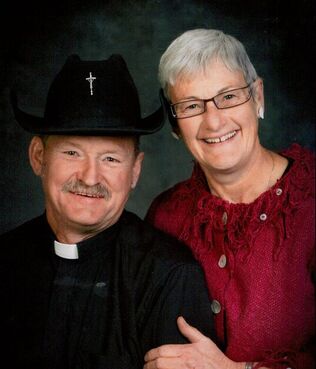 Deacon Larry & Theresa Driver Deacon Larry & Theresa Driver Despite some tough health issues and challenges in recent years, Deacon Larry Driver has survived through the power of prayer. In the fall of 2008, he went in to get an annual physical for his driver’s licence and the doctor noticed he had a large lump on the left side of his throat. It turned out to be Stage 4 melanoma cancer in his lymph nodes on his neck. But that was the primary. After an appointment in the cancer clinic, it was discovered cancer on his left tonsil. After surgery, he had both chemotherapy and radiation treatments. Today, he describes himself as being “pretty healthy.” Although he’s a Type 2 Diabetic and taking some medication, but from a cancer point of view he’s clear. Faith is what he carried him through the ordeal. “I learned what prayer is all about at that point. Over the time, I had people praying all over the world for me to get better and to know that if you need help you ask people to pray for you . . . You need people to pray - to speak to the good Lord. The more people you’ve got praying for you the better your chances are of getting help. Not that He doesn’t help you but it’s the intercessions that we go to Mary and Joseph and the saints for. The more people you’ve got working for you the better it is,” says Driver. Driver, who turns 70 in October, started the program in 2001 to become a Deacon in the Calgary Diocese. He was ordained on June 14, 2004. Driver was attending St. Mark’s in Calgary where he saw Deacon Amadeo served as a deacon. ”It struck me as interesting that he was able to work there.” Closer to 2000, Larry asked Bishop Henry about the permanent diaconate. Bishop Henry recalled this particular conversation with Driver. “Shortly after my arrival in the diocese, and upon meeting Larry, his first question to me was “What do you think about the permanent diaconate?” My reply was “I’m definitely in favour of it.” He was the first to raise the issue with me in the diocese. His question was actually repeated by others many times in the first six months.” 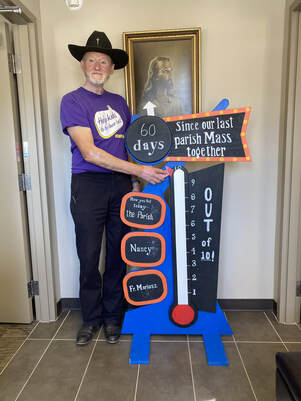 Deacon Larry at St. Francis de Sales Parish Deacon Larry at St. Francis de Sales Parish Driver has been a Deacon from the beginning at St. Francis de Sales in High River. “I’ve been fortunate enough that the Bishops have left me in this parish so far for my Diaconate service,” he says. Driver is originally from the Grande Prairie area. After graduating from the Grande Prairie Composite High School, he had jobs in labour, trucking and warehousing until 1975 then he was hired on by the City of Calgary’s Emergency Medical Services Department and moved to Calgary in July 1975. “The City trained me as a paramedic at SAIT and I graduated as a paramedic with honours from the class and then I worked for the City until 1978. I moved back to Grande Prairie but that didn’t work out. So I came back to Calgary, was rehired and finished up my 32-year career with the City of Calgary,” says Driver, who retired in July 2007. Being a Deacon fits in with his career being a paramedic. “You’re there. You’re helping people. I could see that. But I also saw it as a faith journey to increase my faith and help others through that journey of faith,” says Driver, who has had an interesting personal journey of faith. He was raised Anglican but over time he found the Roman Catholic faith more to his liking and he became a Catholic in the late 1980s with the help of Father Cooney, who eventually became a Bishop. Driver has two daughters who both have two children - three boys and a girl. The family has played an important role in his success in becoming a Deacon as well as in his battle against cancer. “My wife has been a super support through all of this and as much as she’s not on the altar she’s definitely been the one that has supported me the most in this,” says Driver. Therese says it was only natural for her to support her husband on his journey to becoming a Deacon. “If that’s what they want and feel called to do, who am I to stop them and if I don’t support them they can’t go on,” she says. “He felt the calling and was prepared to do what had to be done. It certainly didn’t harm me at all. It certainly gives me an understanding of what’s expected, of what the ministry is and it affects the family. You have to know that ahead of time. It does have an impact on the family and everything you do.” Through Larry’s health challenges, the power of prayer became very important, adds Therese. “To trust in God. If it’s meant to be it will happen, if it’s not then that will happen too. We trust in God and do the best we can and let God work the way He works. It’s God’s work one way or the other and we were prepared either way. If you’re going to survive this, great, if not then we’ll deal with it. So were our kids. They were all on board and you do what you have to. I grew up in hard times and you just do what you have to. That’s all there is to it.”
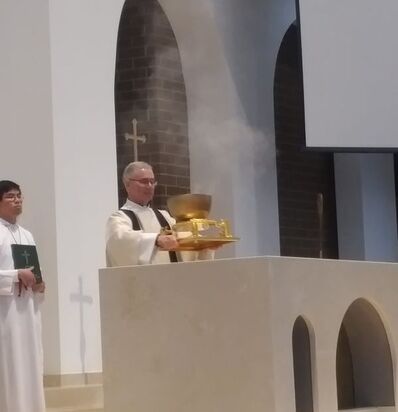 Deacon Dale Laing at St. Thomas More, Calgary Deacon Dale Laing at St. Thomas More, Calgary It’s been more than a year since I was ordained as a Permanent Deacon in the Catholic Church, and what a year it has been! Guiding me during the four-year formation journey was a combination of prayer, effective mentoring, spiritual direction, self-reflection and practical experience. An instrumental topic to me, and that of my spiritual director, has been the transformation of one’s ego. Every person he says, “whether they are aware of it or not, is engaged from the moment of birth in a titanic struggle to lead a life led by the spirit, or, a life led by the attractions of this world. He is fond of saying, “throughout our entire lives, but most especially a man in formation must grow increasingly aware of these two forces, each clamoring for our attention. One force leads to life, and the other to death”. The battleground in this great seesaw for our soul is a person’s ego. It can serve as both sword and shield, our greatest ally, or, our greatest enemy. The successful path to life sees the pouring out, a little at a time from our old self (ego), then, filling the void with the love of Christ. Thus, guided by this new mixture of love, we gain greater strength to support our future actions and ministries. All throughout my life, but especially during my diaconate formation, I came to fully realize the necessity of allowing this constant pouring out and re-filling, as a catalyst to mold myself anew. Following that which promises life, I opened my heart wide to the workings of the Spirit and allowed my self-identity to shift toward the truth of Christ. Infused with a clearer sense of the necessity of living my life closer to God, I invited my wife and my family to join me in this new reality of love. My spiritual director says that formation for a new deacon never stops and once ordained, the deacon must continually be open, and vulnerable, to the revelations which Christ wishes to share with him. A new deacon must continually desire to hold his ego aloft, so that with Christ’s blessing, it may receive further refinement from the Holy Spirit. This willingness to constantly seek to have his ego molded by the Spirit of Christ, this change of heart, is at the very core of diaconal formation he says. Without it, no man can truly serve successfully in the capacity of deacon. This continuous transformation of one’s ego is key for us all. We must let go of doing things our own way, and supplant them with God’s way. One must pour out the old self (one’s former worldly attractions) to receive the new from God. Gradually, our willingness to seek Christ over that of the world is God’s goal for us. Written by Deacon Laing for Faithfully
With a servant’s heart, Joseph Gingco was pleased to help run the audio-visual equipment when his parish hosted an information meeting about the permanent diaconate back in 2013. Joseph, who has a Bachelor of Computer Science degree from the Philippines, knew his skills would prove helpful. Besides that, the life-long Catholic was curious about the topic. Five years later, one of Calgary’s newest deacons believes God used that opportunity to serve to answer one of his prayers. "I will seek you"
God's call
|
Author
Catholic Pastoral Centre Staff and Guest Writers Archives
July 2024
Categories
All
|



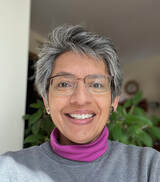
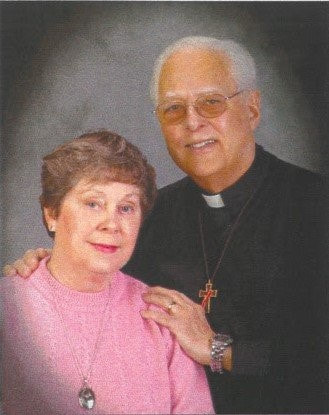
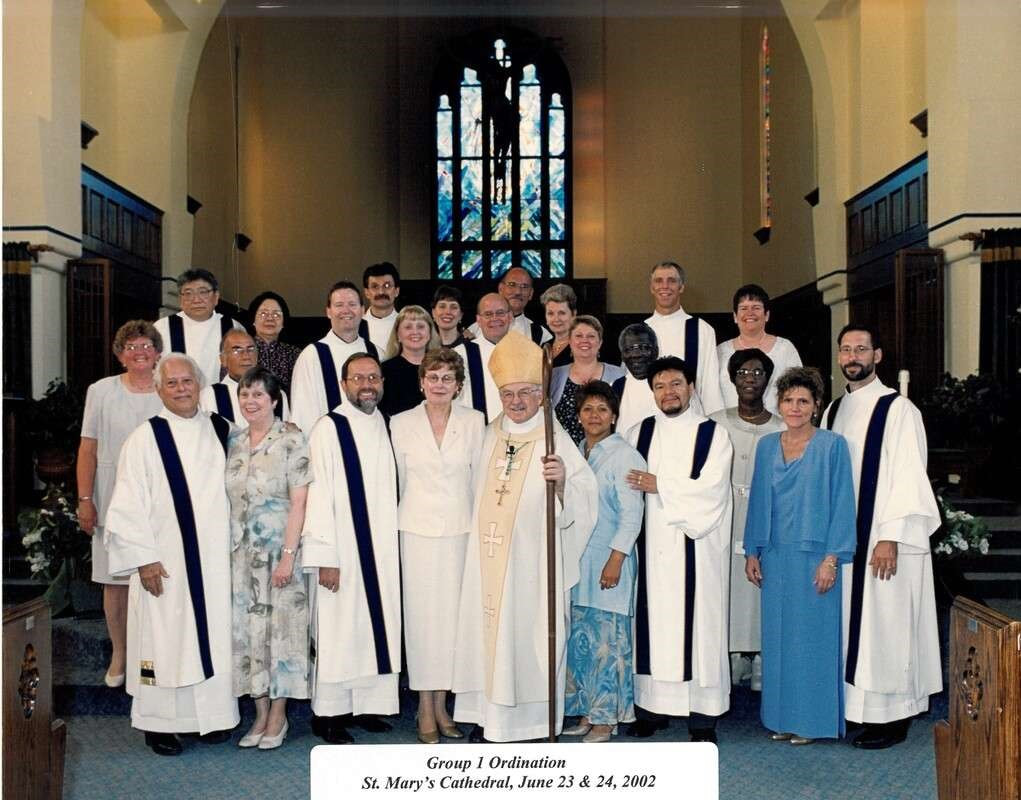
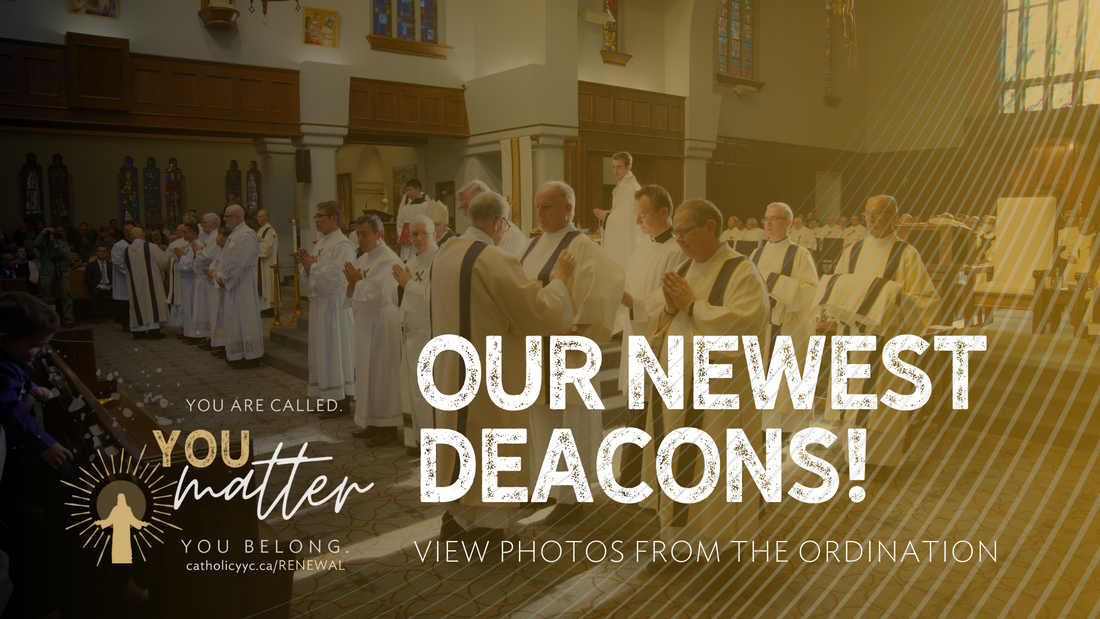
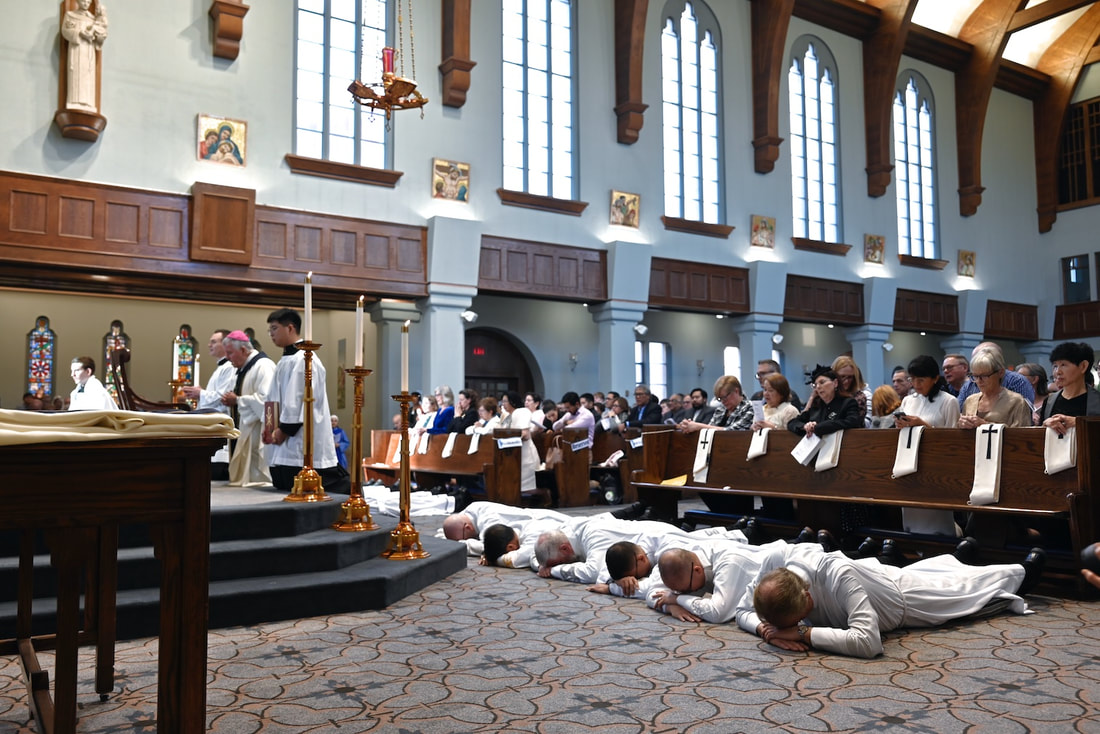
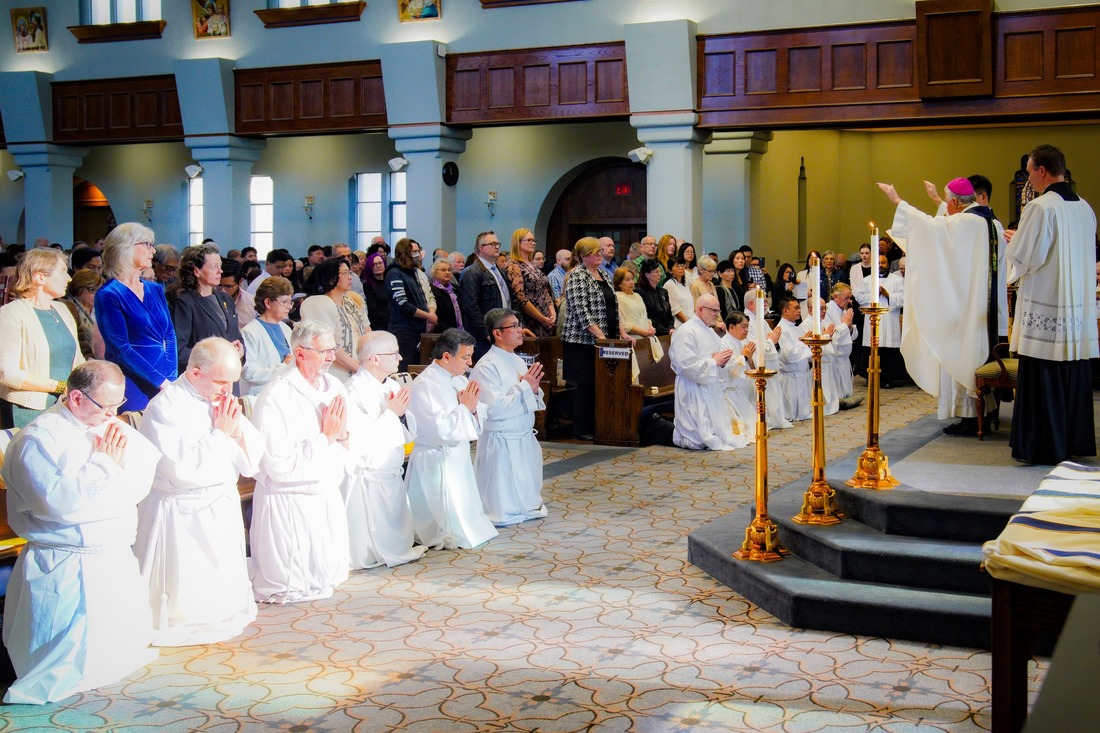
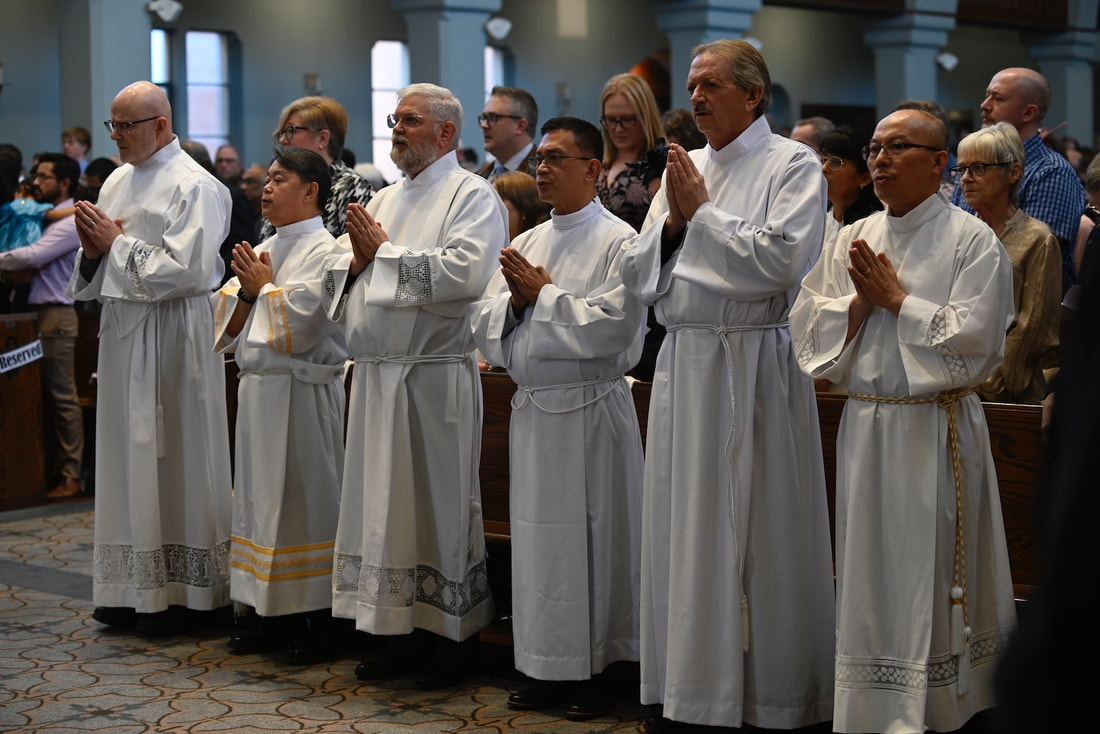
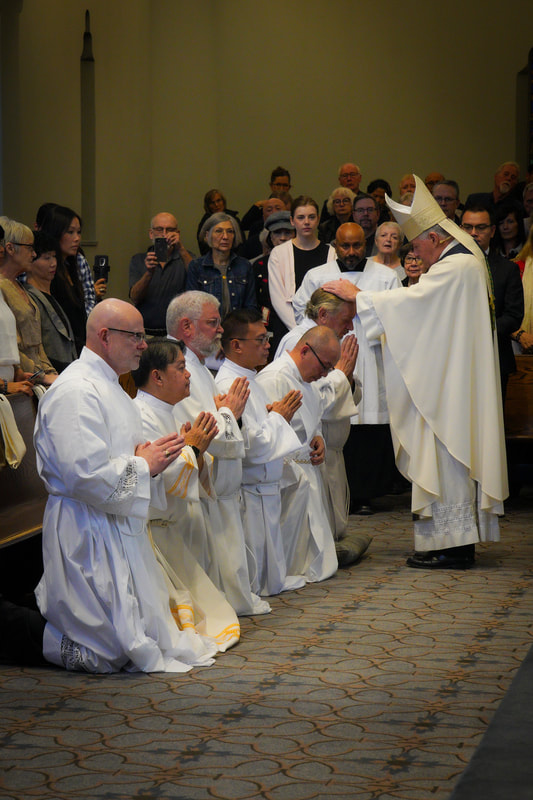
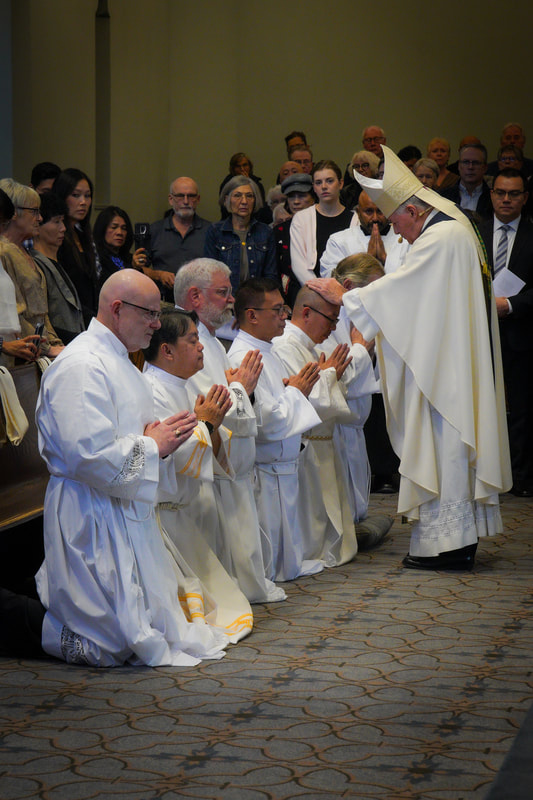
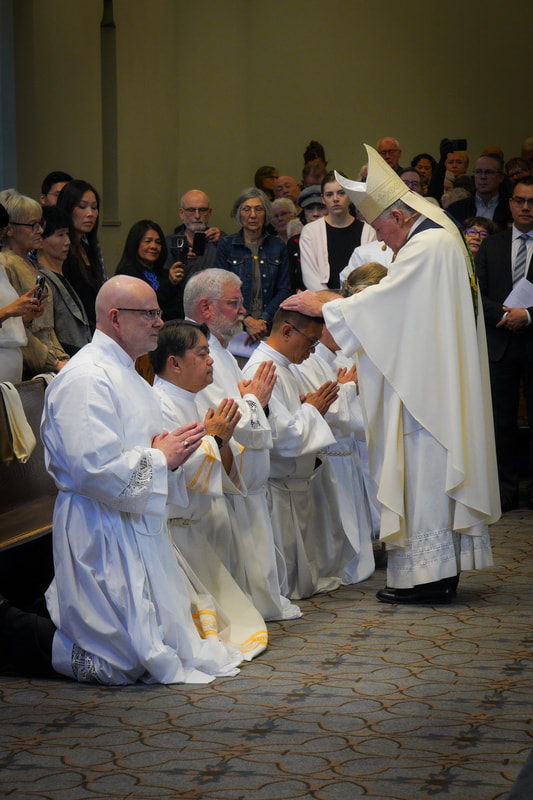
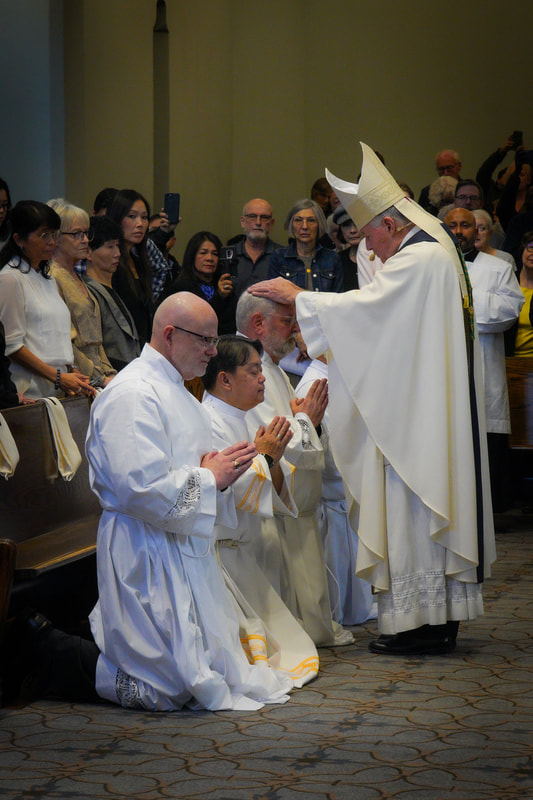
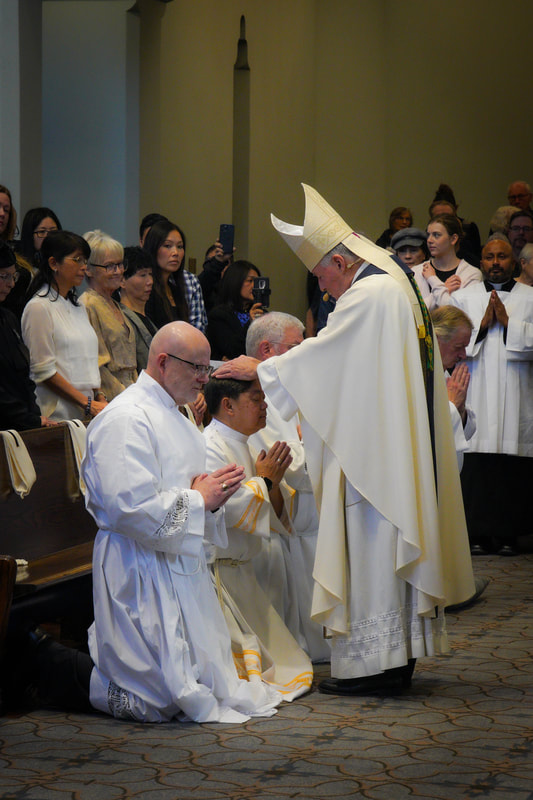
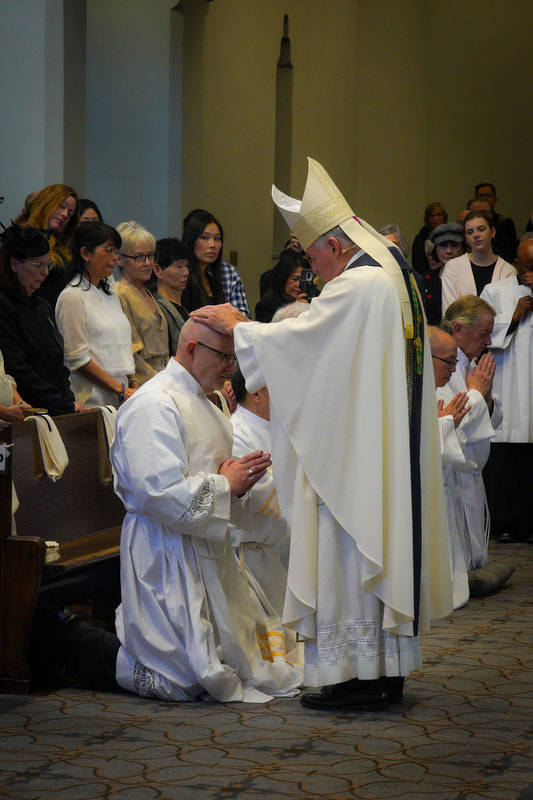
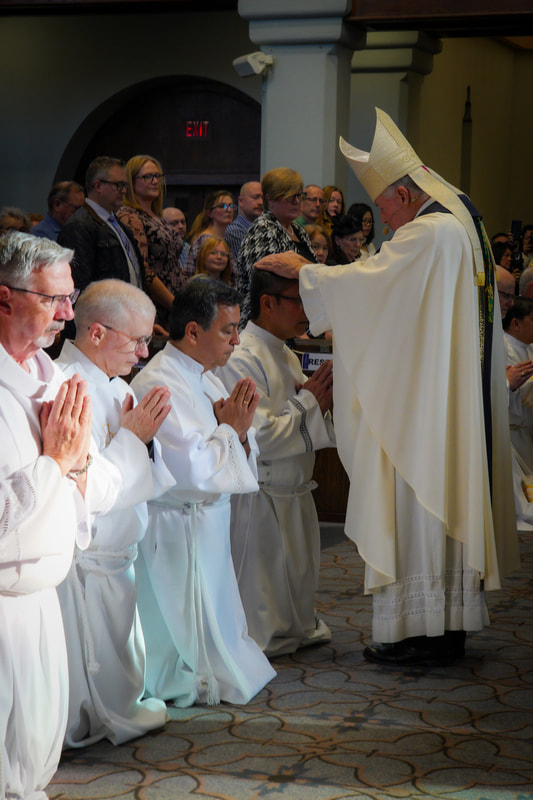
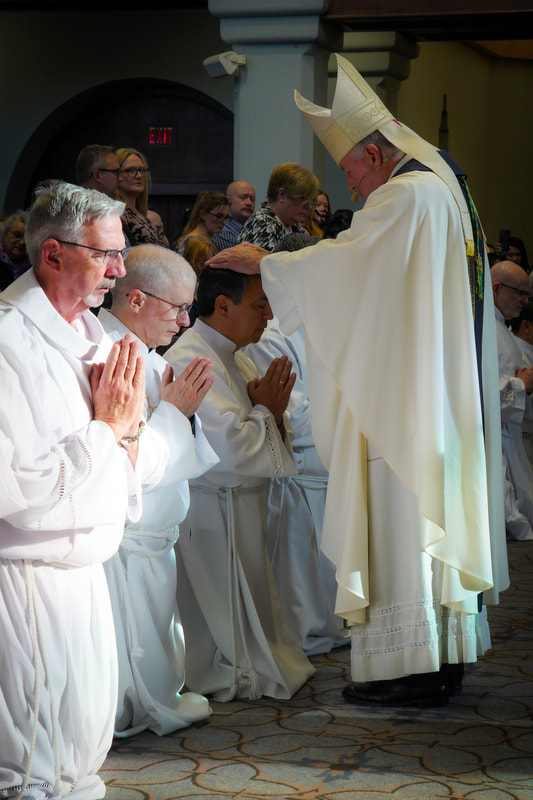
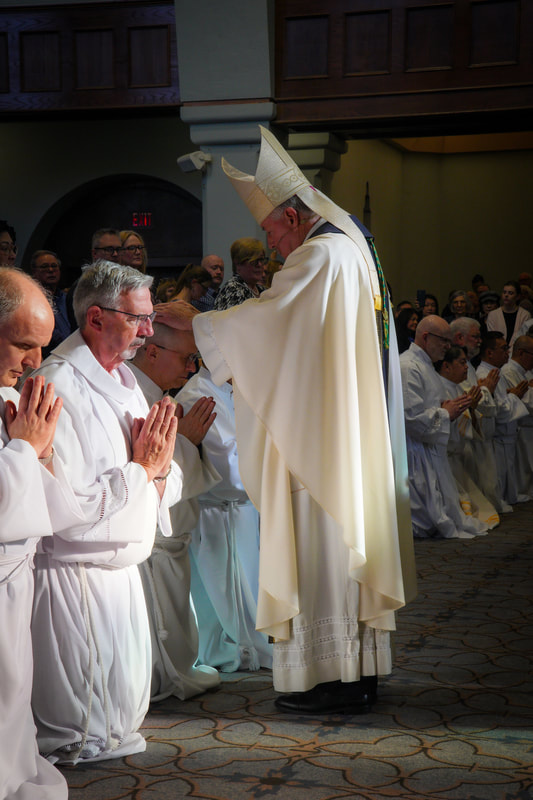
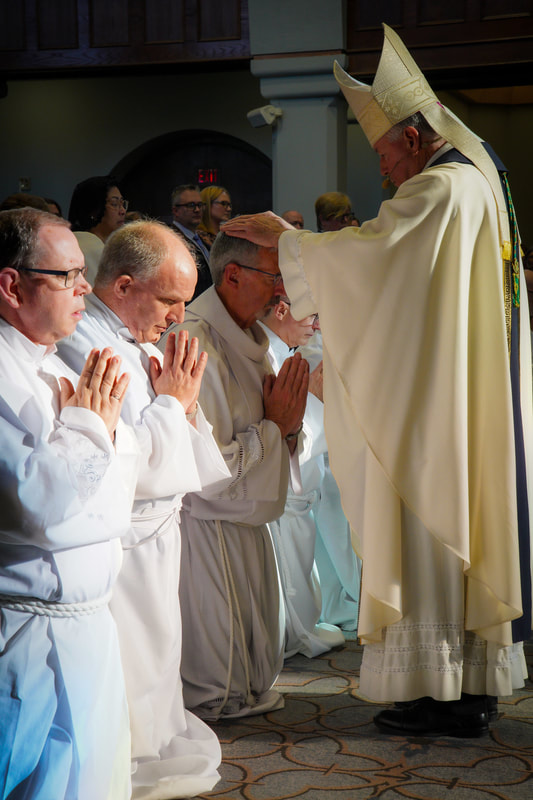
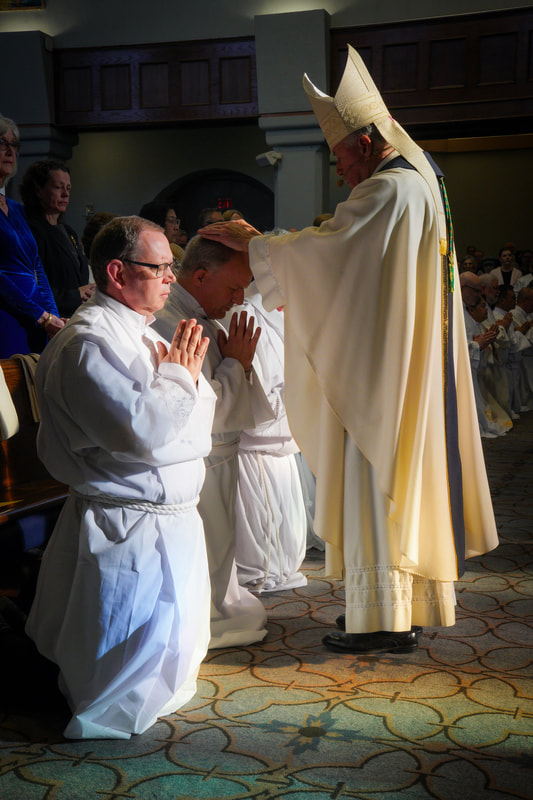
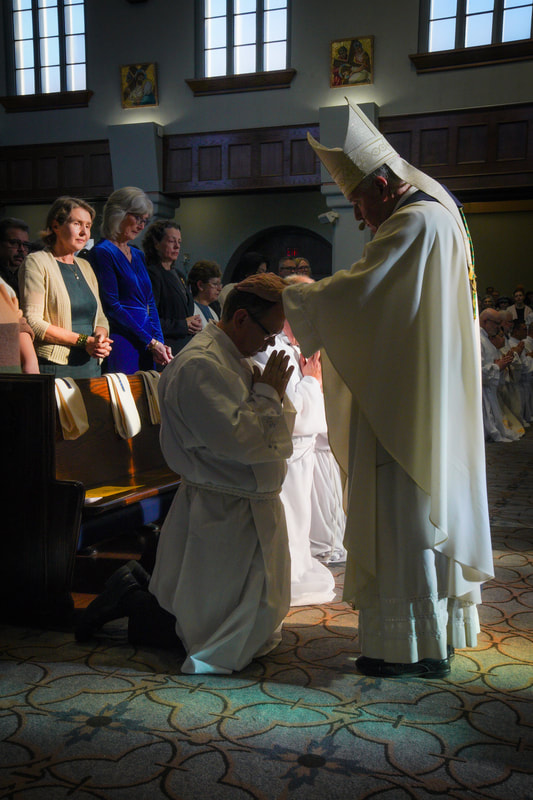
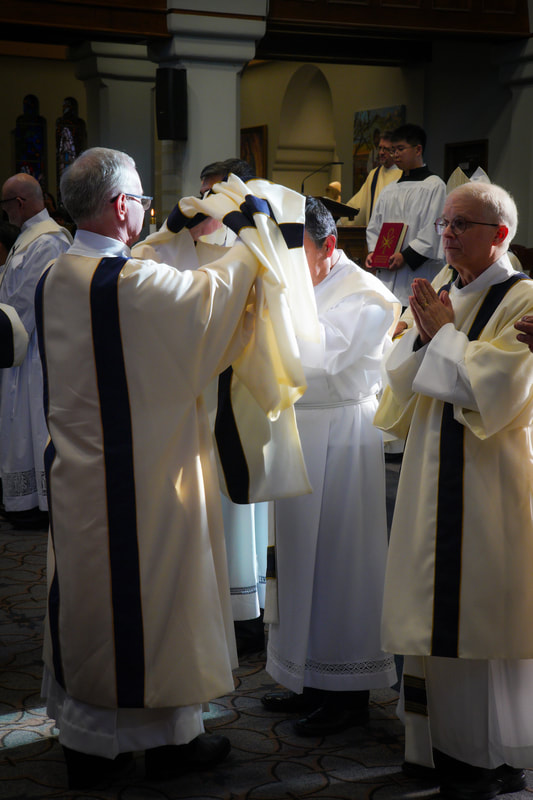
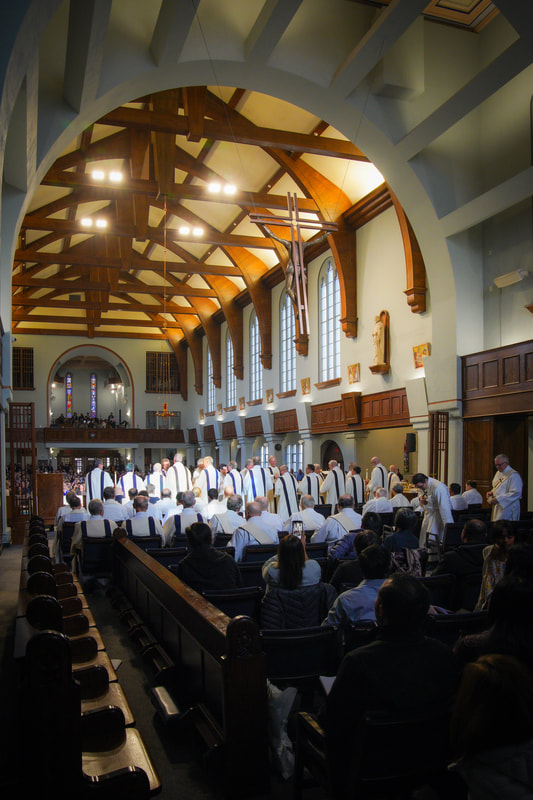
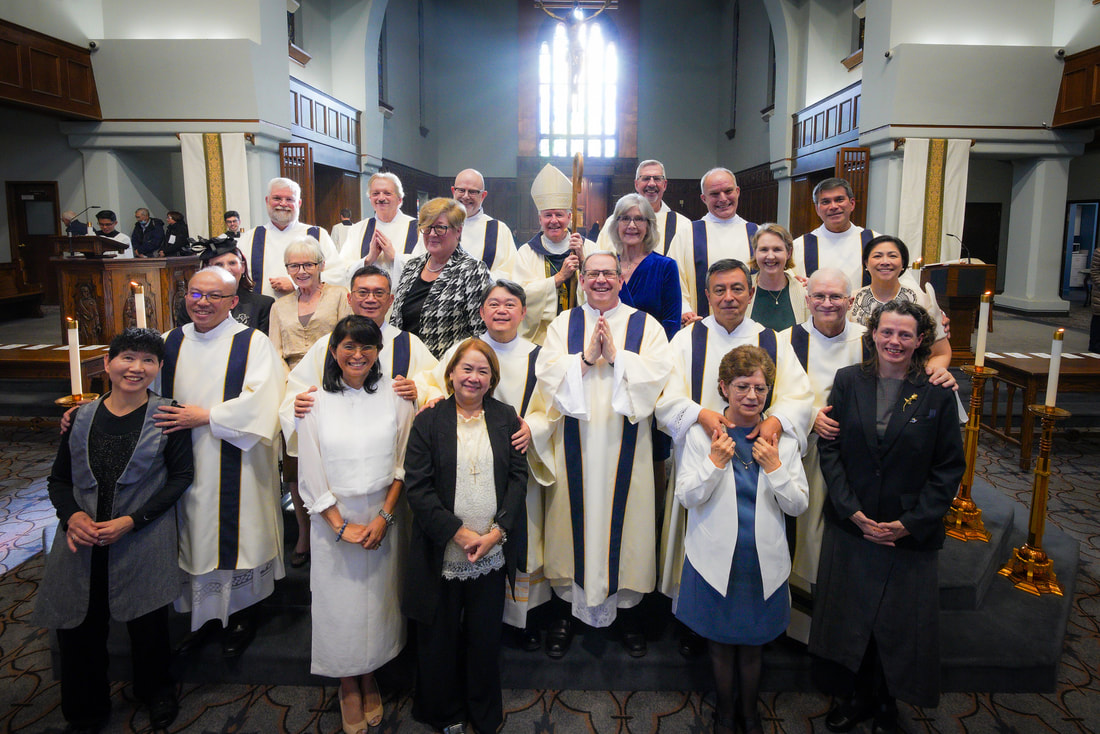
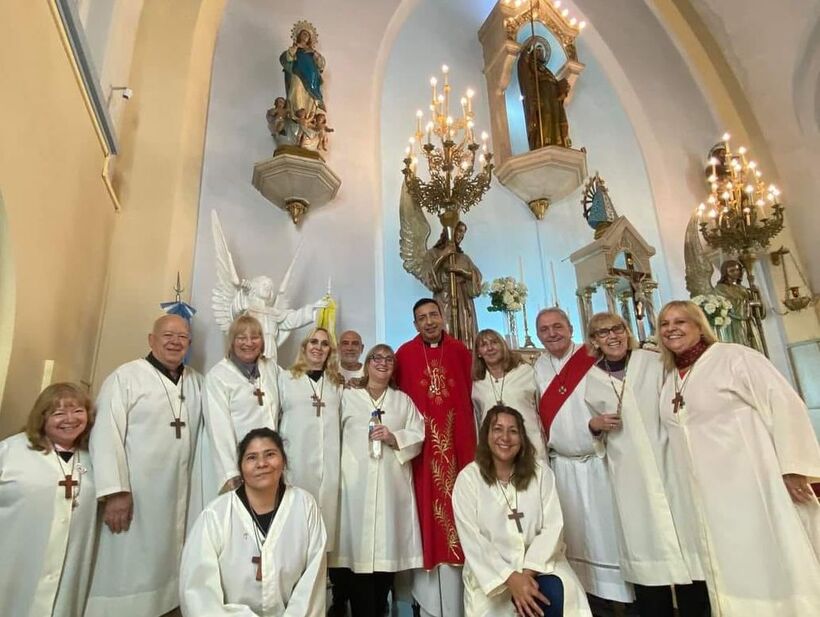
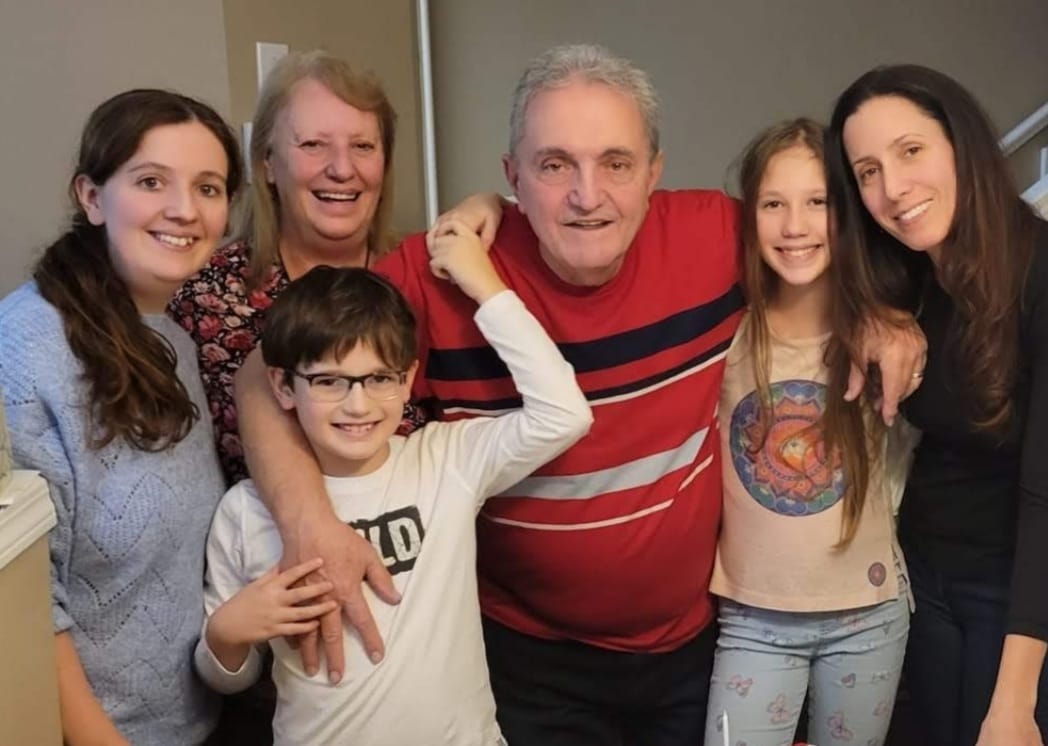
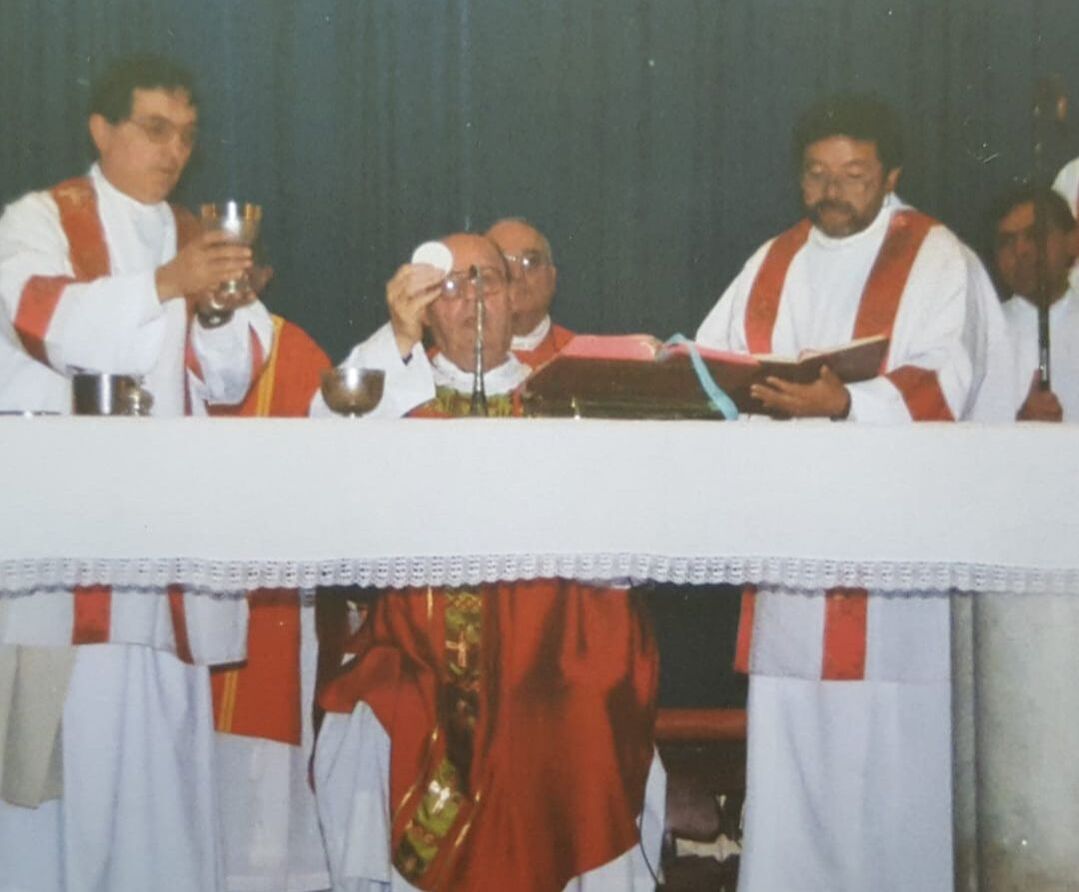
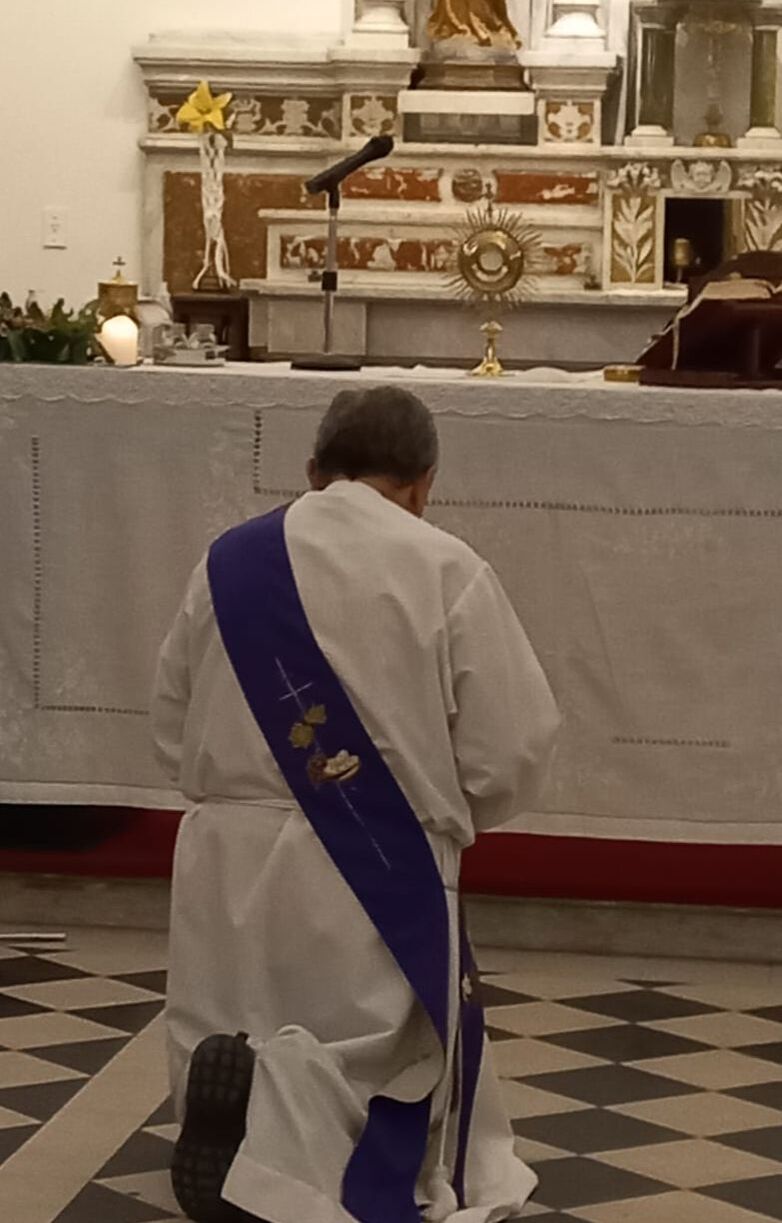

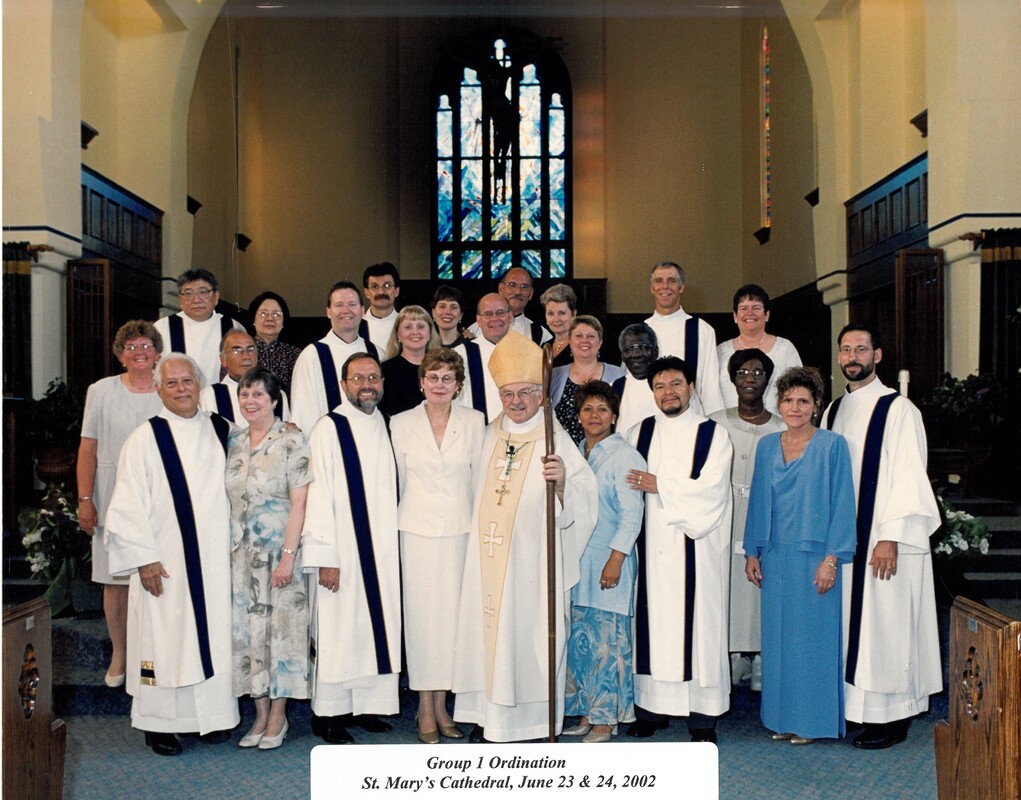
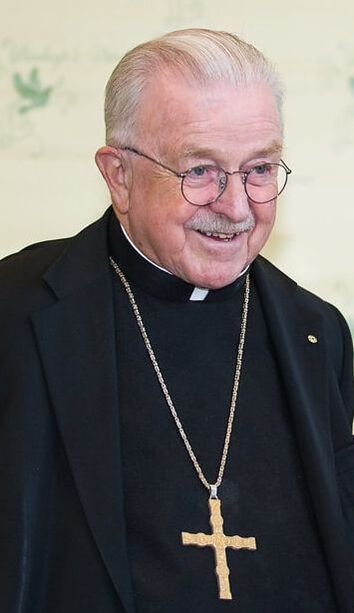
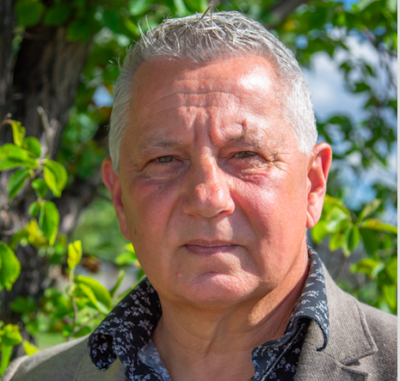
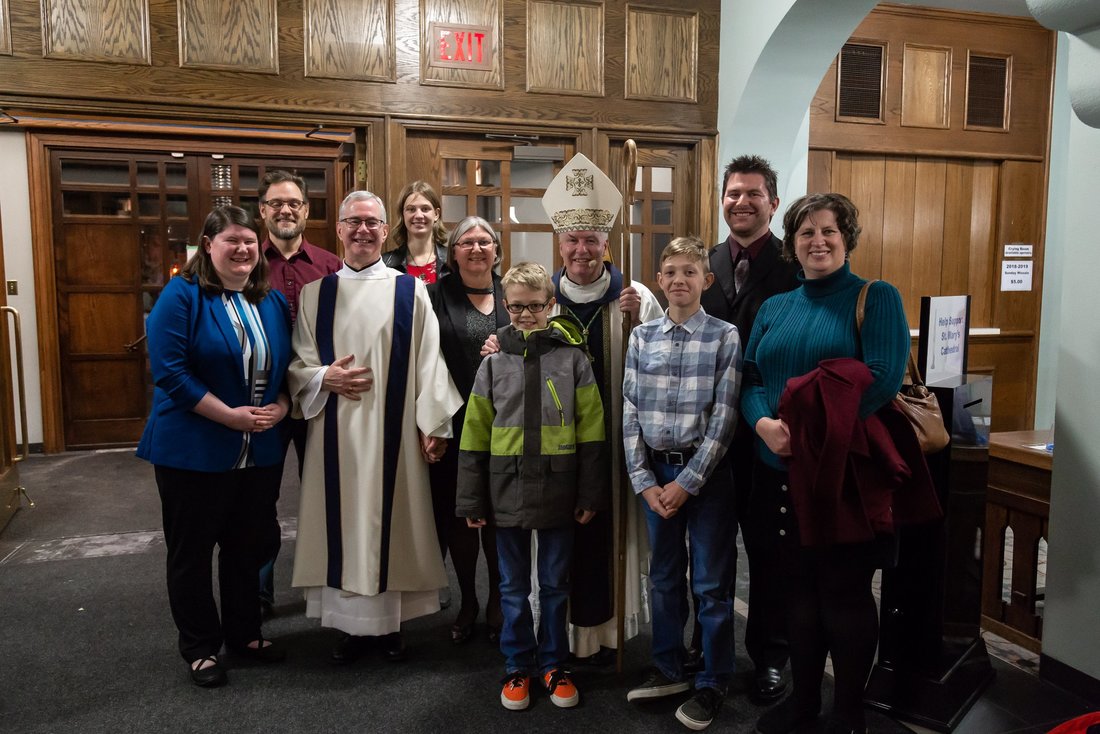
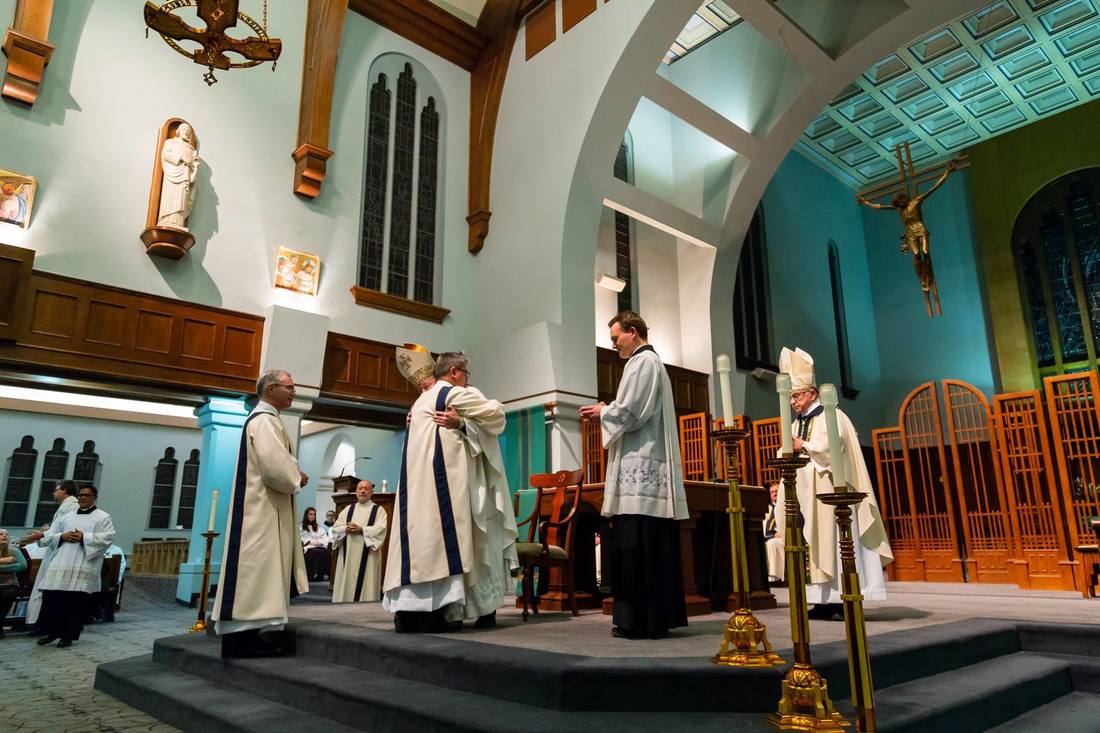
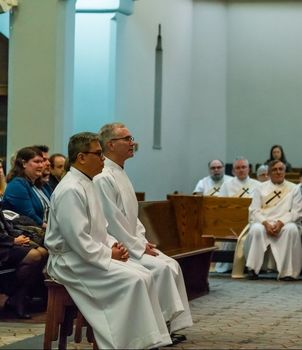
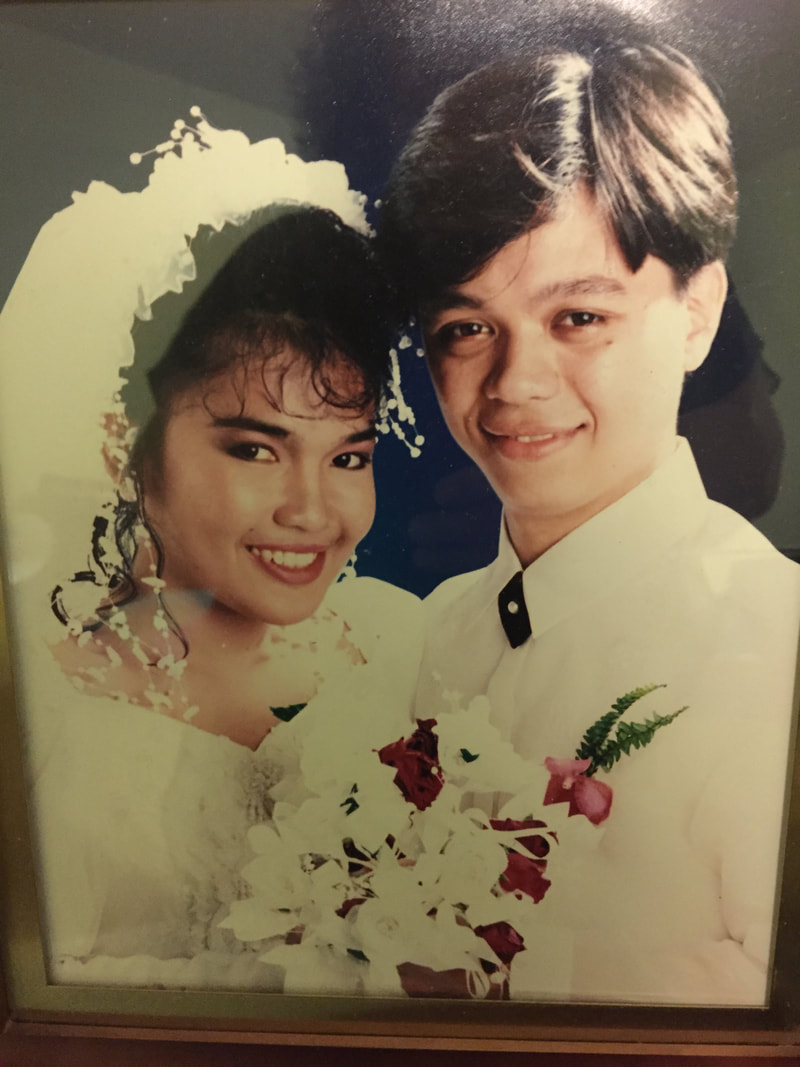
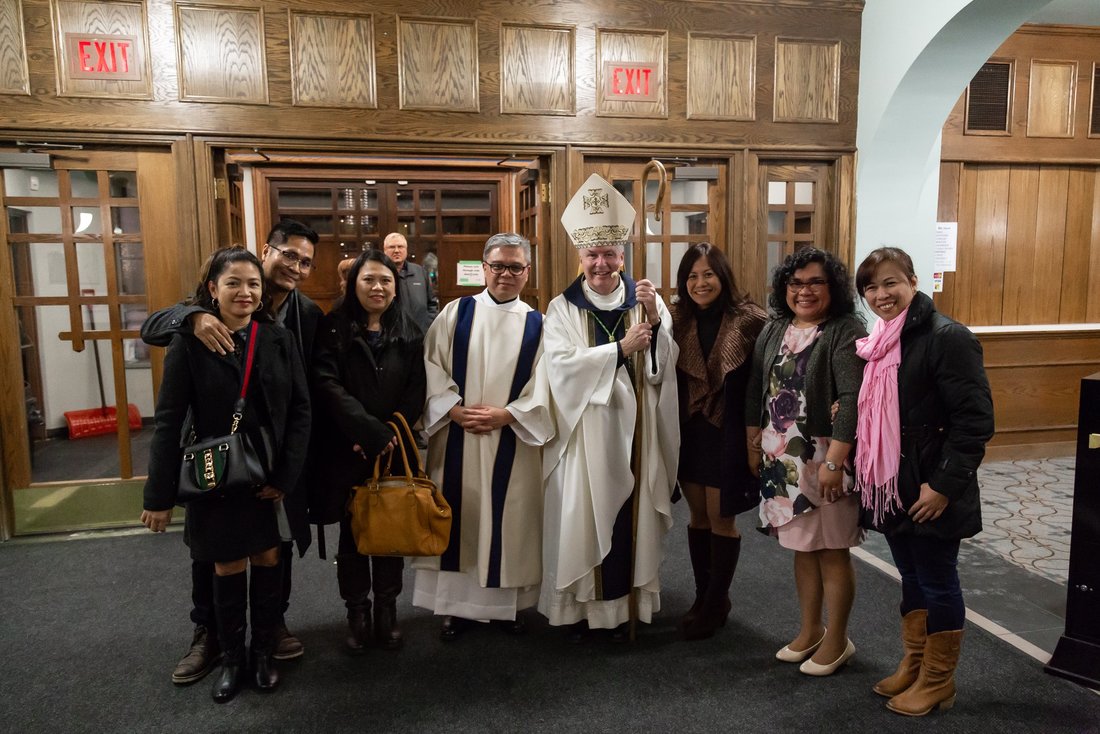
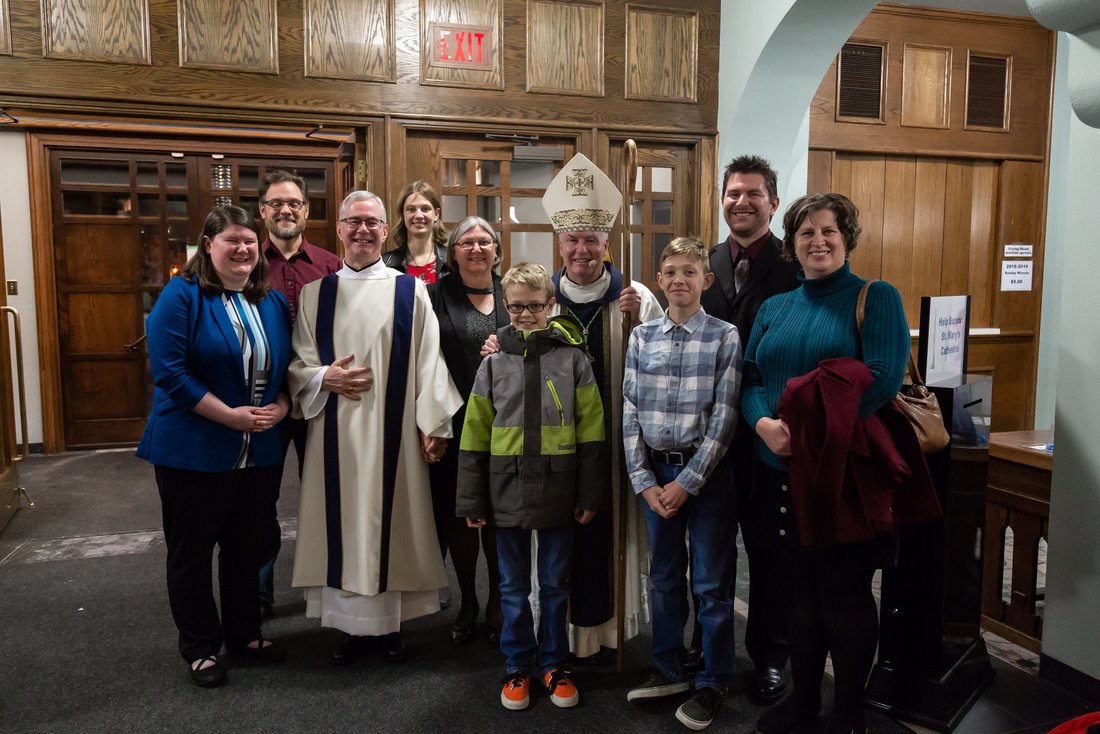
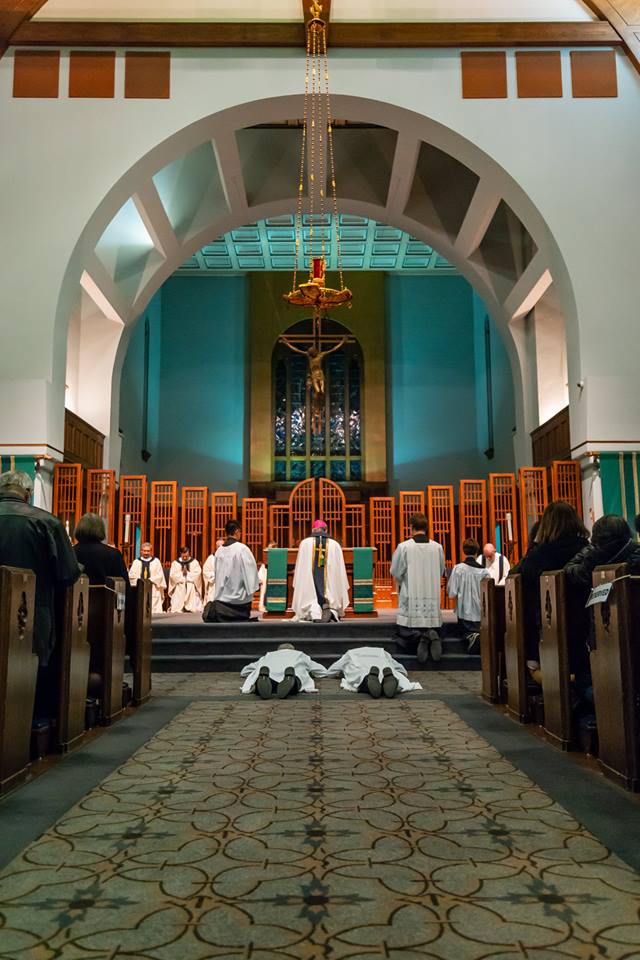
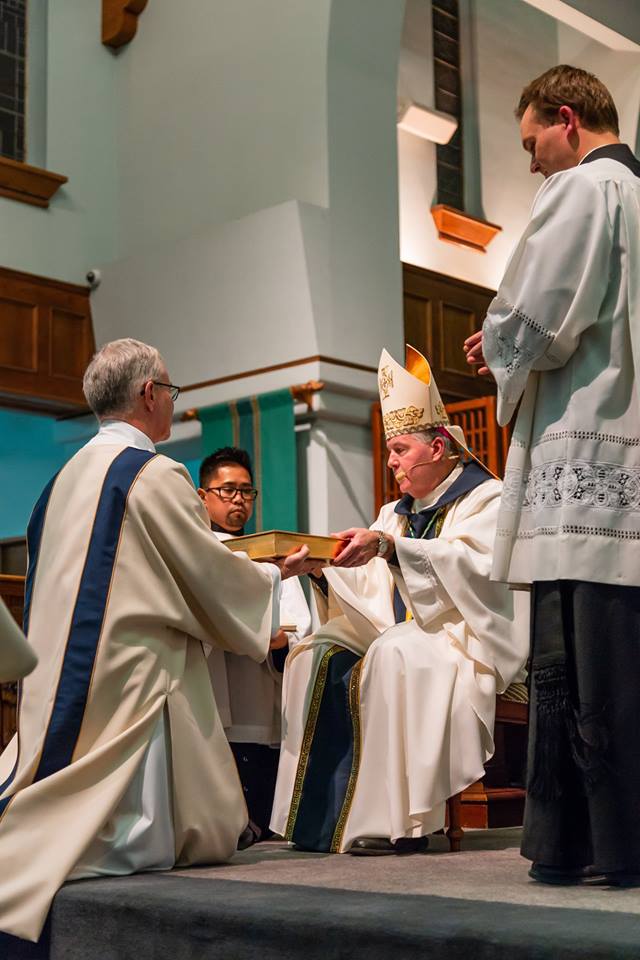
 RSS Feed
RSS Feed